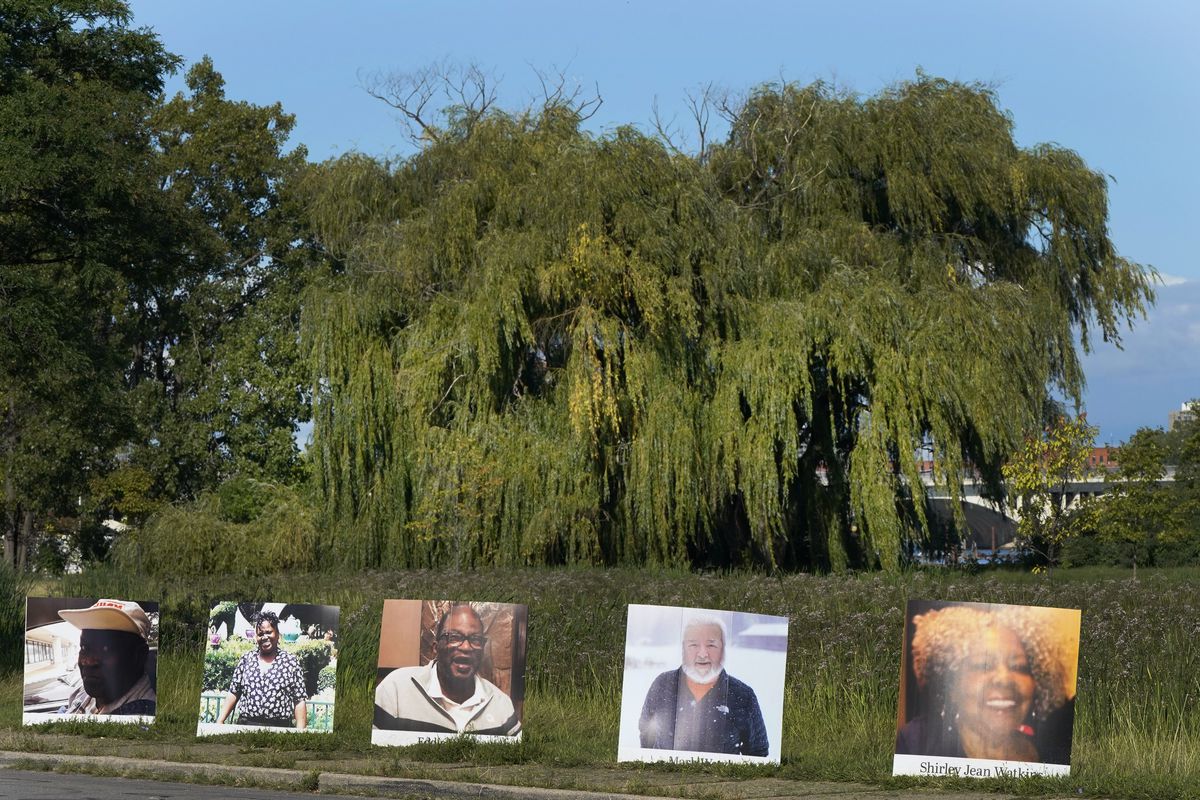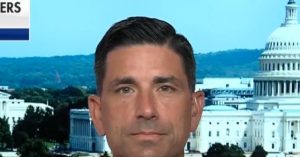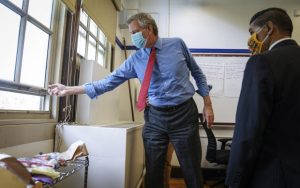The latest
COVID-19 victims honored in public park transformed into memorial garden
An island park in Detroit has become an extraordinary memorial garden, with cars packed with families slowly passing hundreds of photos of city residents who have died from COVID-19.
Mayor Mike Duggan declared Monday Detroit Memorial Day to honor the 1,500-plus city victims of the pandemic. Hearses escorted by police led solemn all-day processions around Belle Isle Park in the Detroit River after bells rang across the region at 8:45 a.m.
“It is our hope that seeing these beautiful faces on the island today … will wake people up to the devastating effect of the pandemic,” said Rochelle Riley, Detroit’s director of arts and culture.
The “memorial was designed to bring some peace to families whose loved ones didn’t have the funerals they deserved,” Riley said. “But it may also force us to work harder to limit the number of COVID-19 deaths we’ll endure in the coming months.”
News
9:13 a.m. Pandemic threatens food security for millions
The coronavirus pandemic has brought hard times for many farmers and has imperiled food security for many millions both in the cities and the countryside.
United Nations experts are holding an online conference beginning Tuesday to brainstorm ways to help alleviate hunger and prevent the problems from worsening in the Asia-Pacific region — a challenge made doubly difficult by the loss of many millions of jobs due to the crisis.
The U.N. Food and Agriculture Organization forecasts that the number of undernourished people will increase by up to 132 million in this year, while the number of acutely malnourished children will rise by 6.7 million worldwide due to the pandemic.
“We must come to terms with what is before us and recognize that the world and our region has changed,” said Jong-Jin Kim, the FAO’s assistant director-general and regional representative for Asia and the Pacific.
“We must find new ways to move forward and ensure sustainable food security in the face of these twin pandemics, as well as prepare for threats that can and will evolve in the future,” Kim said.
8:09 a.m. Mask ask: Cook County urges residents to cover their faces — or face consequences of COVID-19’s ‘second surge’
The month of August averaged 1,812 coronavirus cases per day, not quite back to where Illinois was at during the peak month of May, when the state averaged more than 2,100 cases per day — but definitely backing up officials’ concerns that the state is trending in the wrong direction.
On Monday, the last day of August, state health officials reported 1,668 new COVID-19 cases and seven additional deaths.
That ends the month with a caseload shy of May’s alarming average, but more than twice the daily case average of 764 in June, and up sharply from the 1,150-daily average in July.
Thankfully, deaths are not again on the rise — as cases in recent weeks have been traced to younger and more resilient age groups. But public health officials have been predicting a spike in fatalities is looming.
The daily death count during the peak month of May was 98. June saw 51 deaths a day. There were 19 per day in July. And in August, there were 17 deaths per day.
Reporter Mitch Dudek has the full story.
New Cases
Analysis & Commentary
8:15 a.m. COVID-19 and crime team up against Chicago’s reputation
Managers of downtown office buildings say their properties have about 5% to 10% of their population on a typical workday. They expect a little more activity after Labor Day, but how much could depend on school situations.
With remote learning mostly the norm in the city and suburbs, working parents need to supervise their children. Biggies such as Google and Facebook have extended voluntary work-from-home policies through July 2021, and other employers have gone at least to next January.
“There are days I see more boat traffic on the river than cars on the streets,” said Lance Knez, vice president of Hines Interests and president of the Building Owners and Managers Association of Chicago, which has worked closely with the city to make sure health guidelines are followed and properties are ready for more people.
For Knez, the bottom line is this, “For people to come back to work, employers and employees must first feel safe.” That applies both to office cleaning regimens and to what’s going on outside.
Read the full Chicago Enterprise column from David Roeder here.



















